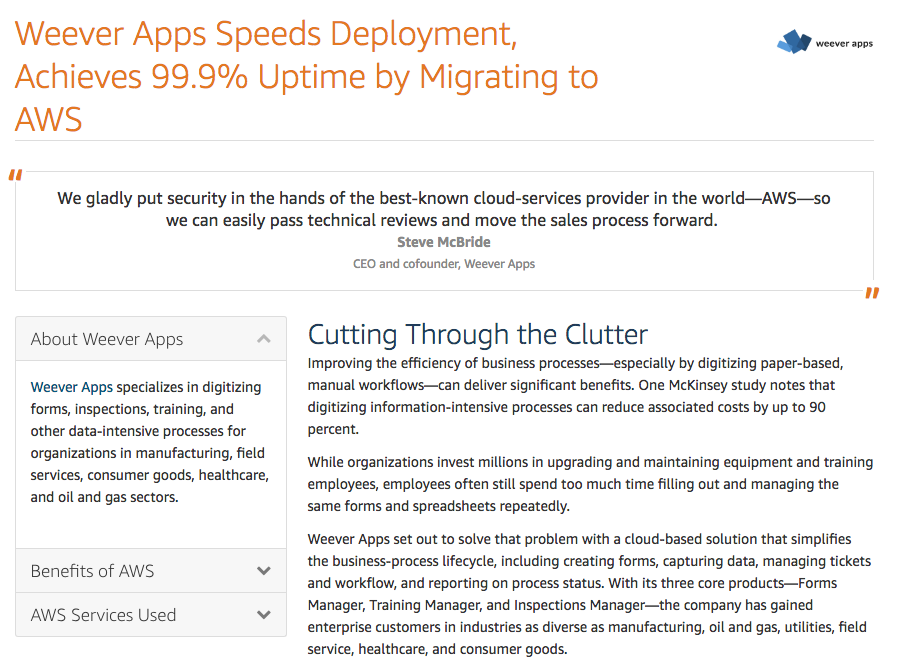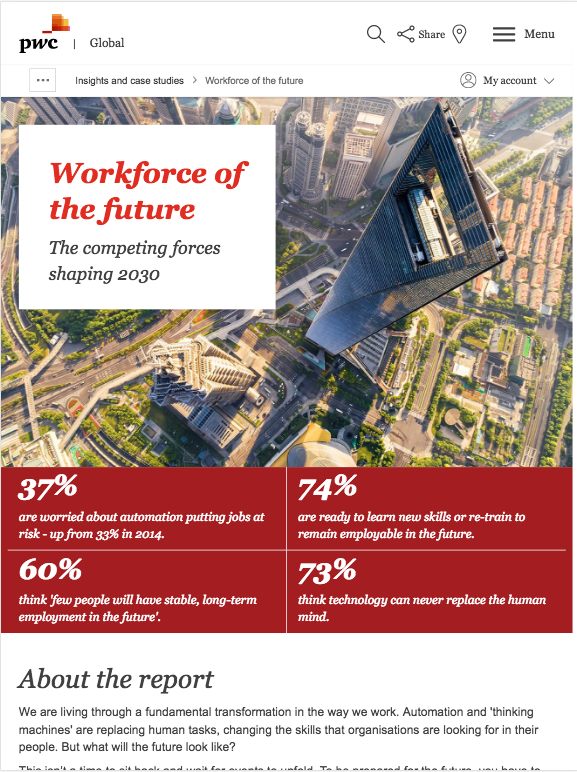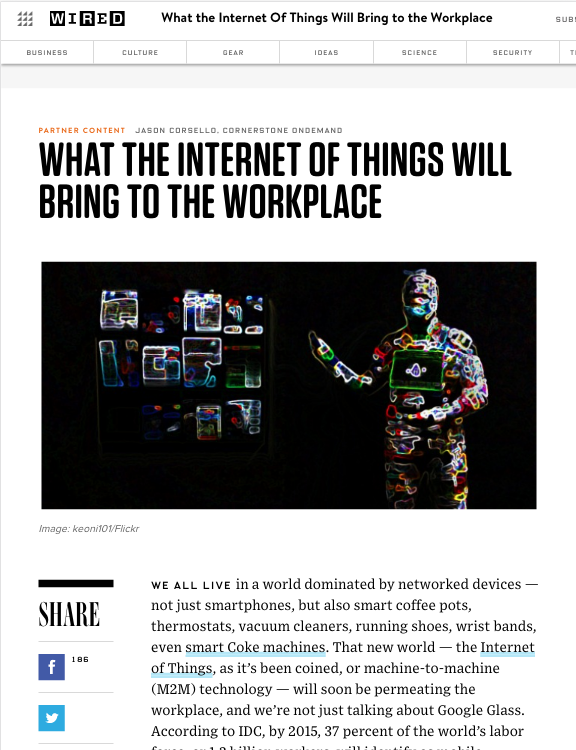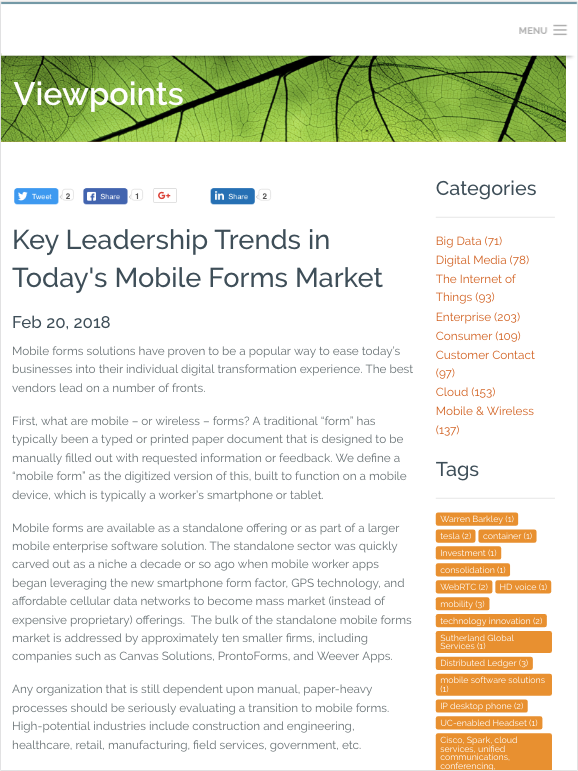Digitization Mavericks
5 tips on how to digitize your manufacturing operations
“Digital transformation” continues to be a hot topic in manufacturing and organizations are either jumping on the bandwagon or getting woefully left behind. The main goal of digitization is usually to enhance operational visibility, optimize resource efficiency and productivity and, ultimately, building better products for less money.Current CEB research and Frost & Sullivan’s Global Digital…
Read MoreWeever Speeds Deployment, Achieves 99.9% Uptime by Migrating to AWS
Cutting Through the Clutter Improving the efficiency of business processes—especially by digitizing paper-based, manual workflows—can deliver significant benefits. One McKinsey study notes that digitizing information-intensive processes can reduce associated costs by up to 90 percent. While organizations invest millions in upgrading and maintaining equipment and training employees, employees often still spend too…
Read MoreHow Executives Around The World View Industry 4.0
The Fourth Industrial Revolution, also referred to as Industry 4.0, is the marriage of the physical world with digital technologies like analytics, artificial intelligence, cognitive technologies and the internet of things (IoT). To better understand the Fourth Industrial Revolution’s impact on business, Forbes Insights and Deloitte surveyed more than 1,600 executives in the Americas, Asia-Pacific…
Read More27 Stats about Digital Workplace Transformation
Digital transformations and employee enablement are important focuses in our changing working world. According to Dizzion “Organizations resoundingly agree that digital workplace enhancements are important to company success, and many are making moves in that direction.“
Read MoreWorkforce of the future
According the Price Waterhouse Cooper, By 2020, millennials will form 50% of the global workforce.
Read MoreWhat the Internet Of Things Will Bring to the Workplace
According to Wired.com, “Data entry is another way to boost productivity. M2M can help create efficiency around this task — and limit mistakes. As more devices become connected, manual entry will fall by the wayside, giving humans more time to focus on ways to be proactive with the data rather than spending time entering it.”…
Read MoreKey Leadership Trends in Today’s Mobile Forms Market
Mobile forms solutions have proven to be a popular way to ease today’s businesses into their individual digital transformation experience. According to this Frost Digital Transformations article, “Any organization that is still dependent upon manual, paper-heavy processes should be seriously evaluating a transition to mobile forms. High-potential industries include construction and engineering, healthcare, retail, manufacturing,…
Read More






